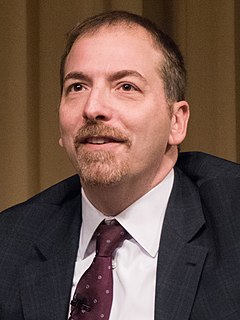A Quote by Walter Scott
Who, noteless as the race from which he sprung,
Saved others' names, but left his own unsung.
Related Quotes
If I was to ask you tonight if you were saved? Do you say 'Yes, I am saved'. When? 'Oh so and so preached, I got baptized and...' Are you saved? What are you saved from, hell? Are you saved from bitterness? Are you saved from lust? Are you saved from cheating? Are you saved from lying? Are you saved from bad manners? Are you saved from rebellion against your parents? Come on, what are you saved from?
Breathes there the man, with soul so dead, Who never to himself hath said, This is my own, my native land! Whose heart hath ne'er within him burn'd, As home his footsteps he hath turn'd From wandering on a foreign strand! If such there breathe, go mark him well; For him no Minstrel raptures swell; High though his titles, proud his name, Boundless his wealth as wish can claim; Despite those titles, power, and pelf, The wretch, concentred all in self, Living, shall forfeit fair renown, And, doubly dying, shall go down To the vile dust, from whence he sprung, Unwept, unhonor'd, and unsung.
In my case, I think my exile saved my life, for it inexorably confirmed something which Americans appear to have great difficulty accepting. Which is, simply, this: a man is not a man until he is able and willing to accept his own vision of the world, no matter how radically this vision departs from others.
Ecclesiastes names thee Almighty, the Maccabees name thee Creator, the Epistle to the Ephesians names thee Liberty, Baruch names thee Immensity, the Psalms name thee Wisdom and Truth, John names thee Light, the Book of Kings names thee Lord, Exodus names thee Providence, Leviticus Sanctity, Esdras Justice, creation names thee God, man names thee Father; but Solomon names thee Compassion, which is the most beautiful of all thy names.
God left the world unfinished for man to work his skill upon. He left the electricity in the cloud, the oil in the earth. He left the rivers unbridged and the forests unfelled and the cities unbuilt. God gives to man the challenge of raw materials, not the ease of finished things. He leaves the pictures unpainted and the music unsung and the problems unsolved, that man might know the joys and glories of creation.
Our feelings probably are not less strong at fifty than they were ten or fifteen years before; but they have changed their objects, and dwell on far different prospects. At five-and-thirty a man thinks of what his own existence is; when the maturity of age has grown into its autumn, he is wrapt up in that of others. The loss of wife or child then becomes more deplorable, as being impossible to repair; for no fresh connection can give us back the companion of our earlier years, nor a "new-sprung race" compensate for that, whose career we hoped to see run.
Only he who can view his own past as an abortion sprung from compulsion and need can use it to full advantage in the present. For what one has lived is at best comparable to a beautiful statue which has had all its limbs knocked off in transit, and now yields nothing but the precious block out of which the image of one's future must be hewn.
The Ragamuffin rabble are the unsung assembly of saved sinners who are little in their own sight, conscious of their brokenness and powerlessness before God, and who cast themselves on His mercy. Startled by the extravagant love of God, they do not require success, fame, wealth, or power to validate their worth. Their spirit transcends all distinctions between the powerful and powerless, educated and illiterate, billionaires and bag ladies, high-tech geeks and low-tech nerds, males and females, the circus and the sanctuary.
When Christ was about to leave the world, He made His will. His soul He committed to His father; His body He bequeathed to Joseph to be decently interred; His clothes fell to the soldiers; His mother He left to the care of John; but what should He leave to His poor disciples that had left all for Him? Silver and gold He had none; but He left them that which was infinitely better, His peace.



































